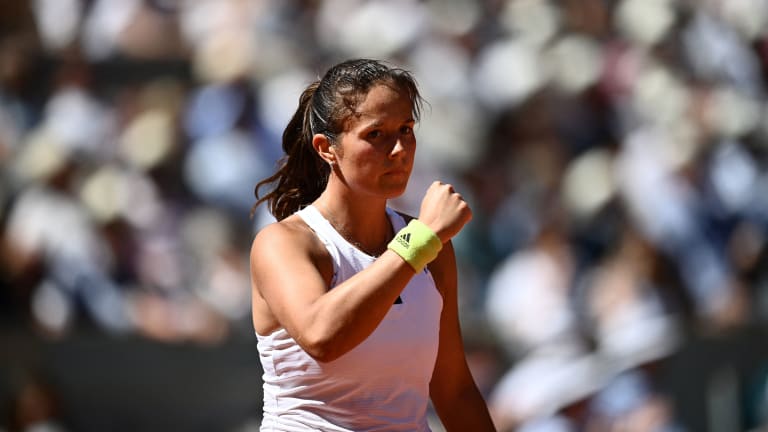Daria Kasatkina the Courageous comes out as gay, and draws a line in the sand against Russian “taboos”
By Jul 21, 2022WTA Doha, Qatar
Refreshed Daria Kasatkina talks Winter Olympics, Papadakis-Zabiiako figure skating
By Feb 10, 2026Australian Open
"Nobody cares": Anastasia Potapova shrugs off copying Daria Kasatkina's nationality switch statement
By Jan 18, 2026Australian Open
Daria Kasatkina is “giving ‘no worries’ a crack” in first Australian Open as Aussie citizen
By Jan 17, 2026Player News
Daria Kasatkina says she's at "breaking point" as she ends tennis season early
By Oct 06, 2025Pop Culture
Cate Blanchett cuts a popular figure at Wimbledon, from star-struck Barbora Krejcikova to Daria Kasatkina
By Jul 02, 2025Lifestyle
Daria Kasatkina proposed to Natalia Zabiiako with an assist from Daria Saville
By Jun 14, 2025Social
Daria Kasatkina and Natalia Zabiiako announce their engagement
By Jun 07, 2025Style Points
Style Guide: Mirra Andreeva is raiding everyone’s closet at Roland Garros
By Jun 02, 2025Quote du Jour
Mirra Andreeva roasts Daria Kasatkina's interview skills: "She can improve!"
By May 31, 2025Daria Kasatkina the Courageous comes out as gay, and draws a line in the sand against Russian “taboos”
Sometimes it takes a deep personal stake to impel a person to take a stand.
Published Jul 21, 2022
Advertising
Advertising
Advertising

“This thing, about someone wanting to be gay, or becoming one, it’s so ridiculous,” said Kasatkina. “There’s nothing in the world easier than being straight.”
© AFP via Getty Images